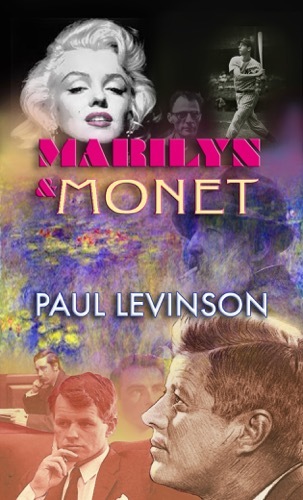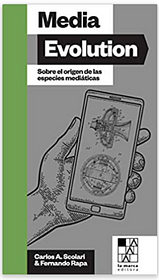Paul Levinson's Blog: Levinson at Large, page 113
November 20, 2020
Big Sky 1.1: Pretty Big Deal

My wife and I caught David Kelley's Big Sky. He has a good thing currently going on The Undoing, check out my reviews. Big Sky, based on the pilot, appears to be another good thing. [Spoilers below.]
The story takes place in Montana, hence Big Sky. It has a definite Twin Peaks vibe, replete with a scene in a diner (which shut down, due to Covid, a real Twin Peaks touch right there). But so far, there's nothing other-worldly or interdimensional. (I can't recall, was Twin Peaks already in that alternate zone in its first episode?)
But what we do have is a sharp kidnap-sex-slave ring that's been going on for a while, with at least two out-of-the-blue surprises. A truck-driver who seems an easy going guy (played by Brian Geraghty, who made a good impression on Chicago P. D.) tazes a prostitute (played by non-binary Jesse James Keitel) he picks up at a truck stop, and then two young women whose car broke down on the road in the woods. And a state trooper (played by John Carroll Lynch, who has made a good impression on dozens of shows) plays a state trooper, who kills a private detective who is looking for the missing women. One unexpected tazing (the other two were certain to happen as soon as the car broke down on the road) and one unexpected murder are a better-than-average quotient of surprises in a pilot, which usually have only one.
And it's a good thing that the victims were just kidnapped not killed. They look to be at least a little more interesting-than-usual characters (played by Natalie Alyn Lind and Jade Pettyjohn, in addition to Keitel). And the murder of the detective leaves the agency in the hands of two women investigators, played by Kylie Bunbury and Katheryn Winnick. I haven't seen Bunbury before but Winnick was memorable in Bones and even more so in Vikings.
So it looks like we have some good ingredients in Big Sky, and I haven't even mentioned the music, also much better than average. Hey, it's not too often, if at all, that you hear The Rolling Stones' "It's All Over Now" on a network television show. See you back here next week,
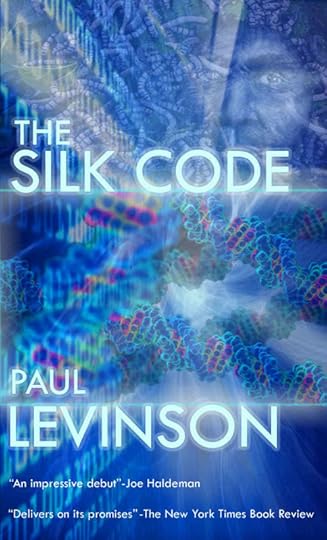
Paul Levinson's books ... Paul Levinson's music
November 19, 2020
Podcast Review of The Crown season 4
Welcome to Light On Light Through, Episode 157, in which I review The Crown season 4 -- the best season so far in this superb series.
Further listening:
Review of The Crown seasons 1-3
Further reading:
Review of The Crown Season 1 ... Season 2 ... Season 3 ... Season 4
Paul Levinson's books ... Paul Levinson's music
November 18, 2020
The Crown season 4: Margaret Thatcher and The Queen, Charles and Diana

I thought Season 4 of The Crown, which my wife and I just finished binge watching, was the best of the series so far. It had two toweringly important stories, each brilliantly acted and powerfully presented.
Margaret Thatcher, the U.K.'s Iron Lady, contemporary of Ronald Reagan (from my American perspective), was tour-de-force portrayed by Gillian Anderson. Her acting, excellent to begin with in The X-Files, just gets better and better. Her conversations with Olivia Coleman as Queen Elizabeth II were non-pareil. Woman-to-woman, perfect tones of voice and gestures and head inclinations and facial expressions, these conversations are a veritable textbook of how to act. And the true story of Thatcher, the combination of her real toughness and real vulnerabilities, including her clinging love of power, rang bells as to what's happening in the United States right now. Trump has none of Thatcher's steel. His toughness is all bravado. But he has the same love of power. And though Thatcher believed in democracy, albeit as a hard-eyed conservative, and Trump is a fascist at heart, their penchant for clinging to power is disturbing to contemplate, and deftly portrayed by Anderson as Thatcher in The Crown.
Charles and Diana, as we all know, is a modern-day Shakespearean tragedy. Josh O'Connor has Charles, at least far as we saw him in the news clips, pretty well down pat. The slightly bent head, the almost diffident smile, all of that hiding a keen wit and a boiling well of anger at being stuck in this marriage and even life makes a riveting counterpoint to Emma Corrin's Diana, innocent at first, growing into a thirst for fame, soaking it up, and the beginning of a real humanitarian soul that leads her to hug a boy with AIDS in Harlem, NY. The two of them drive themselves and hence the larger family to the breaking point.
But the Queen survives it all, and succeeds, better politically than personally, but still tolerably well at this point, as the family celebrates an internally frosty Christmas in the closing scene. I have no idea how accurate this all is. I of course know nothing of Elizabeth personally, and I prefer ancient Roman history to England for the past seventy years. But, as I always tell my students, docu-dramas never tell the complete truth, not usually even most of it, and that's ok. Because, at their best, they can tell deeper truths about human affairs, in all senses of that word. And this season of The Crown does one fabulous job of it.
See also The Crown season 1: Peerless ... The Crown season 2: Standing Ovation ... The Crown season 3: Outstanding Story, Worthy Chapters

November 17, 2020
Joel Iskowitz at the Atlantic Gallery

As many of you know, I've had the great fortune of having Joel Iskowitz design the covers for many of my books, ranging from the Sierra Waters time travel trilogy (pictured above -- and note that the third novel, Chronica, written in 2015, makes reference to Joe Biden as President!) to Marilyn and Monet (pictured at the end of this post). Isky, as I call him, has been my friend since the 5th grade in the Bronx, where we conspired about how to impress girls, and I first became aware of his talent for illustration. More recently, he has guest lectured in some of my classes at Fordham University, I interviewed him on my Light On Light Through podcast, and he introduced me to John Glenn (subject of several Iskowitz portraits), whom I interviewed just a year before his passing for Touching the Face of the Cosmos: On the Intersection of Space Travel and Religion (for which Isky also did the cover) (here's an audio of the interview).
So, I was truly delighted to learn about Joel Iskowitz's first solo show, Icons of Inspiration, at the Atlantic Gallery in New York City. Our continuing caution about COVID kept Tina and me from attending in person, but, happily, you can see all of Isky's works online at the virtual show, right over here.
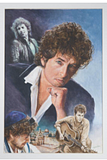
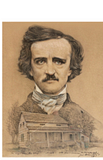
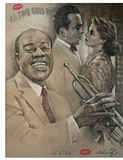
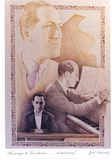
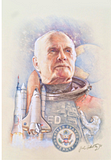 My favorites are just about all of them, but here are some that really hit the spot for me: Bob Dylan, Edgar Allan Poe, Louis Armstrong (with Bogey and Bacall), George Gershwin, and of course John Glenn.
My favorites are just about all of them, but here are some that really hit the spot for me: Bob Dylan, Edgar Allan Poe, Louis Armstrong (with Bogey and Bacall), George Gershwin, and of course John Glenn.
Prints are available of many of these -- they'd light up any wall, just as they light up the soul.
November 15, 2020
The Undoing 1.4: Three Great Scenes with Sutherland

Well, The Undoing checked in with another great episode -- 1.4 -- on HBO tonight. And we still have really no better idea of who killed Elena.
I mean, the end, and this is not much of a spoiler, points a little more to Grace, assuming that's who Jonathan meant went he told Connie Chung that he had lost someone he loved. There's maybe a chance that he meant losing Grace, but if not, if that meant he deeply loved Elena, and he lost her, when Grace killed her ... well, that still doesn't mean that she did. Didn't the police cam show her walking away from the murder scene, before Elena was killed?
So that leaves us still with a paucity of suspects. I still think there's an outside chance that Donald Sutherland's character Franklin -- Grace's father -- did it. He has a pent up fury inside him, and Sutherland played him powerfully tonight, in more than one scene. I think my favorite was his conversation with Jonathan. In addition to Franklin's words, he looked like he was close to spitting in his errant son-in-law's face. A close second was Franklin confessing to Grace how unfaithful he had been to his wife her mother. And a third scene, Franklin and that "putz" Connaver, head of Reardon, was a fine piece of work, too.
As it's been all along, The Undoing is teeming with great acting. Hugh Grant put in some excellent scenes tonight, too. And all of this is still wrapped tight as a drum as to who did the deed. Anyone else? It's almost certainly not Henry, and not Sylvia, either. Though she's likely the other woman Jonathan was having an affair with, so that increases her chances, at least a little.
When you can't find a suspect, one sometimes fruitful move is to go back to the first one -- in this case, Jonathan -- but the combination of the character and actor still has me pretty much convinced it's not him, either.
See you here next week.
See also The Undoing 1.1: A Murder, A Missing Person, and NYC Bustling in the Snow ... The Undoing 1.2-3: A Dearth of Likely Suspects

November 10, 2020
Carlos Scolari and Fernando Rapa's Media Evolution: A Review

Marshall McLuhan burst onto the scene and became the preeminent thinker about media and their effects upon us -- a position he still comfortably holds -- with the publication of his two masterful works, The Gutenberg Galaxy (1962) and Understanding Media (1964). These two were unconventional books -- Gutenberg Galaxy exploded the very notion of chapters and turned them into blog posts almost 40 years before there were blogs online -- but they were undeniably books.
Not so, or not quite, the pair of publications that followed. These were a lot a closer to Mad Magazine than a book, or, if a book at all, more like a graphic novel than a proper or improper scholarly book. They were also co-written -- which has nothing to do with their structure, but is worth noting -- with Quentin Fiore (The Medium is The Massage, 1967; War and Peace in the Global Village, 1968). McLuhan followed these with more "conventional" Gutenberg Galaxy-type books, which also were co-written, leaving The Medium is the Massage and War and Peace in the Global Village as standalone high-water marks of how to conduct a scholarly probe ala Alfred E. Newman.
But those two serio-comic books are chocked full of insights, worthwhile to profound, about the media world back then and where it might be headed. My own first book about McLuhan (Digital McLuhan: A Guide to the Information Millennium, 1999), a scholarly investigation in a form that your great-grandmother's professor would be comfortable reading (if not necessarily agreeing with) has quotes from and references to the two McLuhan-Fiore books in just about every chapter. And I cherish the worn, cracking paperbacks of these sibling books on my bookshelf, right next to the other harder, hardcover works by McLuhan, or McLuhan and co-authors.
So I was truly pleased to get a copy of Carlos Scolari and Fernando Rapa's Media Evolution (Scolari's words, Rapa's graphic designs), which will fit right up there on my bookshelves next to Medium is the Massage and War and Peace in the Global Village. Most of the words are in Spanish, which I can barely read, but the images are pretty much all you need to get what the book is talking about it, and they're images Quentin Fiore, and Marshall McLuhan, would surely have appreciated. The references in the book are also in the McLuhanesque tradition -- deep and far reaching -- and range from close McLuhan associates such as Bob Logan to science fiction pathbreakers like Bruce Sterling. Hey, Scolari even managed to get a photocopy of a relevant page from my 1979 doctoral dissertation (Human Replay: A Theory of the Evolution of Media) into his book.
So, pick up a copy of Media Evolution, and enjoy and learn, whatever language you most like to read.
November 9, 2020
Why Did So Many People Vote for Trump?
Welcome to Light On Light Through, Episode 156, in which I consider why more than 70 million Americans voted for Donald Trump in the just concluded Presidential election.
Further reading: Escape from Freedom by Erich Fromm
Paul Levinson's books ... Paul Levinson's music
November 8, 2020
The Undoing 1.2-3: A Dearth of Likely Suspects

Catching up with two episodes of The Undoing on HBO, because I've been focusing on the election. But now that America has pulled back from the precipice, it's good to be back to watching at least a little fictional drama. And The Undoing is mystery drama par excellence.
So, here's what we've learned in episodes 1.2 and 1.3: Jonathan is alive. He's Elena's baby's father. Grace is coming around to at least being open to the possibility that Jonathan didn't kill Elena. And ... she was in the area of Elena's murder the night she was so savagely killed.
That's a lot to digest. For Grace to be the murderer, she has to be a psycho par excellence -- if that phrase can be used in conjunction with a psycho. If memory serves, there's been at least one other drama -- a movie, I think -- in which the killer was not the patient the shrink was treating, but the shrink her or himself. So we now have two suspects: Jonathan and Grace.
I'll go out on an obvious limb and say I think the killer is neither. Fernando the victim's husband has the obvious motive, but police say the camera in the area has no record of his being near the scene of the crime. Is that conclusive? Probably not -- I mean, he could have gotten into the room of the crime some other way, been waiting in an apartment above where Elena was killed, right? So, no, his not being in the video footage is not conclusive. But, and, yet, I don't think he's the killer, either.
So who then? We're running out of suspects. Franklyn, Grace's father, could have done it, I guess. But does he have the physical strength? I don't know. Who's left? I can't think of anyone.
All of which makes for one good detective story. Sharply acted, with great New York flavor, including that prison room for visits, which looks like it was shot in the cafeteria of my junior high school in the Bronx, or is that just me?
See you here next week.
See also The Undoing 1.1: A Murder, A Missing Person, and NYC Bustling in the Snow

Paul Levinson's books ... Paul Levinson's music
November 7, 2020
Truth Wins in the Marketplace of Ideas
Welcome to Light On Light Through, Episode 155, in which I put Joe Biden's victory in some philosophic context: it offers proof of John Milton's argument, way back in the Areopagitica, that truth can win in the marketplace of ideas, even this age of social media.
Paul Levinson's books ... Paul Levinson's music
November 6, 2020
Understanding Media Ecology Just Published in China
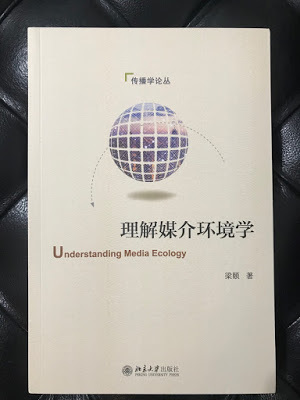
This brand new book by Liang Yi, Understanding Media Ecology, has a chapter devoted to my work, with a link to an audio and a video recording of me. This makes the second book published in China this Fall about my work -- the first was Cheng Gong's Media Competition for Human Selection, Survival of the Fittest: Paul Levinson's Media Evolutionary Theory devoted completely to my theory of the evolution of media, first presented in my 1979 doctoral dissertation, Human Replay: A Theory of the Evolution Media.
Levinson at Large
- Paul Levinson's profile
- 340 followers


